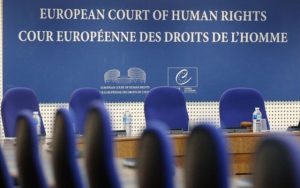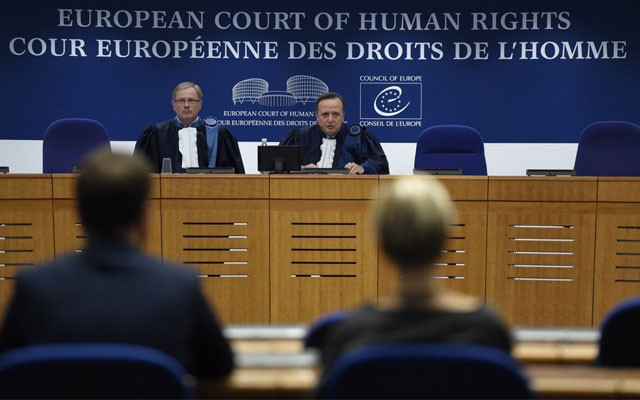The review was prepared by Viktoria Polishchuk, a lawyer, mediator, Head of the Labor Law Committee of NAAU, head of the Center for Labor Law and Social Security of the Higher Academy of Sciences of NAAU.
The ECHR decision in the case of Van der Mussele v. Belgium (application no. 8919/80) concerning the practice of a lawyer to provide legal aid on a free basic basis
 The applicant in the case was a trainee lawyer who had been assigned to defend indigent defendants for free. He believed that this was forced labor.
The applicant in the case was a trainee lawyer who had been assigned to defend indigent defendants for free. He believed that this was forced labor.
On the basis of its own case-law dating back to 1963 (decision on the admissibility of application no. 1468/62, Iversen v. Norway, Convention Yearbook, vol. 6, pp. 327-329) and which it subsequently confirmed, the Commission expressed the view that in order for there to be forced or compulsory labour for the purposes of Article 4 § 2 (art. 4-2) of the European Convention, two cumulative conditions must be met: not only must the work be performed by the person against his will, but the obligation to perform it must also be “unfair” or “oppressive”, or its performance must constitute “avoidable hardship”, in other words, be “undue distressing” or “somewhat oppressive”.
Main conclusion. The Court held that there had been no violation of Article 4. The free legal assistance which the applicant was required to provide was connected with his profession, conferred on him certain advantages, such as the exclusive right to appear in court, and contributed to the improvement of his qualifications. This obligation was linked to another right under the Convention (Article 6(1) right to assistance of a lawyer) and, in the terms of Article 4(3), could be regarded as part of “ordinary civil duties”. Finally, the mandatory free provision of legal services left the applicant sufficient time for gainful employment.
🔗 You can read more about the text of the decision at: https://hudoc.echr.coe.int/eng?i=001-57591
ECHR decision in the case “Rantsev v. Cyprus and Russia” – 25965/04 of 07.01.2010 regarding the failure to ensure rights in the field of combating human trafficking
The applicant in the case was the father of a young girl who died in Cyprus, where she had gone to work in 2001. He complained that the Cypriot police had failed to do everything possible to protect his daughter from being sold into slavery and to punish those responsible for her death. He also complained that the Russian authorities had failed to investigate the sale of his daughter and her subsequent death and had failed to take measures to protect her from traffickers.
The provisions of the Palermo Protocol and the Convention on Action against Trafficking in Persons indicate that the states that concluded them were aware that measures to combat trafficking in persons can only be effective if they are applied in combination with each other.
This gives rise to positive obligations to take measures to prevent trafficking in human beings, to ensure the protection of its victims and potential victims, and to prosecute and punish those responsible for trafficking in human beings. In this regard, it is noted that a feature of trafficking in human beings is that in many cases it is not limited to the borders of any one State. In many cases, traffickers send their recruited victims from one State to another. Relevant evidence and witnesses may be located in several States. In view of this, in addition to the obligation of a Contracting State to investigate events that took place on its territory, each State is also obliged to cooperate effectively with other States interested in the investigation in cases related to cross-border trafficking in human beings, thus ensuring a comprehensive international approach to addressing the problem of trafficking in human beings in countries of origin, transit and destination.
The following conclusions were made in the said case.
Cyprus’ failure to provide an adequate regime to combat human trafficking and to take prompt measures to protect victims from such activities.
Russia’s failure to conduct an effective investigation into the circumstances of the recruitment of a young woman on its territory by human traffickers.
Cyprus had failed to fulfil its positive obligation under Article 4 in view of the following two shortcomings: first, the failure to establish an adequate system of legal and administrative regulation to combat trafficking in human beings and, second, the failure of the police to take appropriate operational measures to protect Rantseva from traffickers. (The question of whether the Cypriot authorities had fulfilled their procedural obligation to investigate the facts of trafficking in human beings was one of the issues to be considered in the context of the general obligations under Article 2 and did not require separate consideration.)
As regards the first shortcoming, the national legislation on combating trafficking in human beings as such did not give rise to any concerns, but the existing visa regime for cabaret artists was criticised by both the Council of Europe Commissioner for Human Rights and the Cyprus Ombudsman, who considered that such a regime contributed to the influx of large numbers of foreign women to Cyprus, where they were at risk of becoming victims of trafficking.
Furthermore, while it was right for the purposes of immigration control that employers should have notified the authorities of the fact that an artist had left their place of employment, the responsibility for ensuring that immigration obligations were met should have been left to the authorities themselves. It was unacceptable that there were rules which encouraged cabaret owners and managers to search for missing artistes or to take personal responsibility for their conduct, and the practice of requiring cabaret owners and managers to provide a bank guarantee to cover potential future expenses for the artistes they employed was particularly worrying. These factors should have been taken into account in the Rantseva case.
Thus, the visa regime for “artists” in Cyprus did not provide practical and effective protection for Ms. Rantseva from the risk of becoming a victim of human trafficking and exploitation.
As to the second deficiency, Cyprus had to fulfil its positive obligation to take measures to protect Ms Rantseva, since the police officers must have observed sufficient indications of circumstances giving rise to a reasonable suspicion that Rantseva was in real and imminent danger of becoming a victim of trafficking or exploitation. The police had committed a number of deficiencies in their actions: they had failed to carry out immediate additional checks to establish whether Rantseva was a victim of trafficking; instead of releasing her, they had handed her over to the director of the cabaret under his supervision; and they had failed to fulfil their statutory duty to take measures to protect her.
Russia’s compliance with positive obligations: The Court found no violation of Article 4 in respect of the positive obligations to establish an appropriate legal and administrative system and to take protective measures. As to the need for an effective investigation in Russia, it found that the Russian authorities were better placed to investigate effectively the circumstances of Rantseva’s recruitment, as it had taken place on Russian territory. However, no such investigation was carried out, which was an even more serious shortcoming, given Rantseva’s subsequent death and the mysterious circumstances surrounding her departure from Russia.
Conclusion: violation (unanimously).
Article 5: The detention of Ms Rantseva in the police station and her subsequent detention in the flat amounted to deprivation of liberty. It would be logical to conclude that Ms Rantseva was initially detained in order to ascertain whether she had committed any immigration offences, but that, after the police officers had established that there had been no such offences, their decision to keep her in the station and place her under the supervision of the director of the cabaret was not based on the provisions of domestic law. The question of Cyprus’ responsibility also arose in connection with Ms Rantseva’s detention in the flat, since, although she was being held there by a private individual, it was clear that such a deprivation of liberty could not have taken place without the active assistance of the police. The deprivation of her liberty resulting from her detention in the flat was both arbitrary and unlawful.
Conclusion: violation by Cyprus (unanimously).
Article 41: Compensation for moral damage is awarded: 40,000 euros to be paid by Cyprus and 2,000 euros by Russia.
Main conclusion: The Court noted that, as in the case of slavery, in human trafficking, human beings are treated as commodities to be bought and sold and forced to work, and that trafficking itself is prohibited by Article 4. The Court found that the Cypriot authorities had violated Article 4 because they had failed to put in place adequate legal and administrative mechanisms to combat trafficking and because the police had failed to protect Ms Rantseva, despite the fact that the circumstances clearly indicated that she might be a victim of trafficking.
There had also been a violation of Article 4 by the Russian authorities, as they had failed to investigate the circumstances of where and how Ms Rantseva had been recruited, who her employer was, and what methods had been used.
ECHR decision in the case of DH v. Finland (application no. 30815/09) regarding the actions of the authorities
In November 2007, the applicant, a Somali national born in 1992, arrived in Italy by boat. He fled Mogadishu, where he claimed he had been forced to join the army following the collapse of the country’s state structures, and where his life was in danger from Ethiopian troops who were capturing and killing young Somali soldiers. In the winter of 2007, the Italian authorities abandoned him on the streets of Rome without any help or resources. He was constantly hungry, cold, physically abused and insulted, in particular by the police in Milan, to whom he had turned for help. The applicant was eventually smuggled to Finland, where he applied for refugee status and his application was rejected in February 2010. The applicant complained that if he were returned to Italy he would be subjected to inhuman and degrading treatment, particularly given that he was an unaccompanied minor.
The court discontinued the proceedings because it was established that the applicant had obtained a permanent residence permit in Finland and that he was no longer at risk of expulsion. The court held that the disputed situation that gave rise to the complaint had been resolved.




